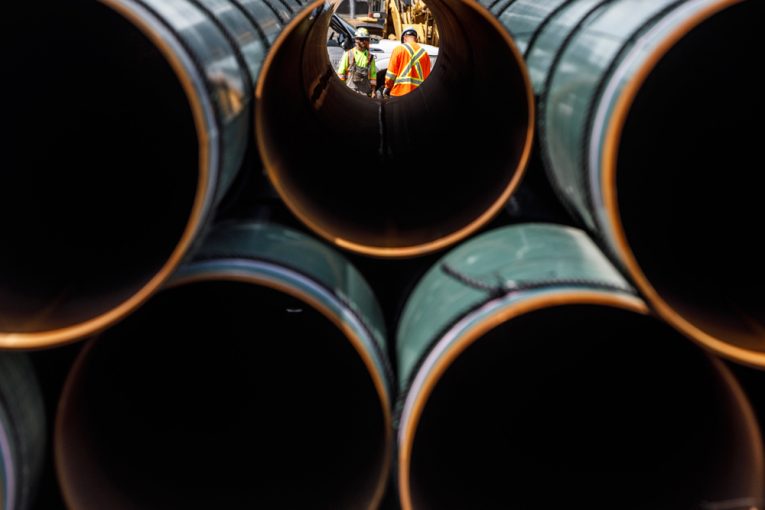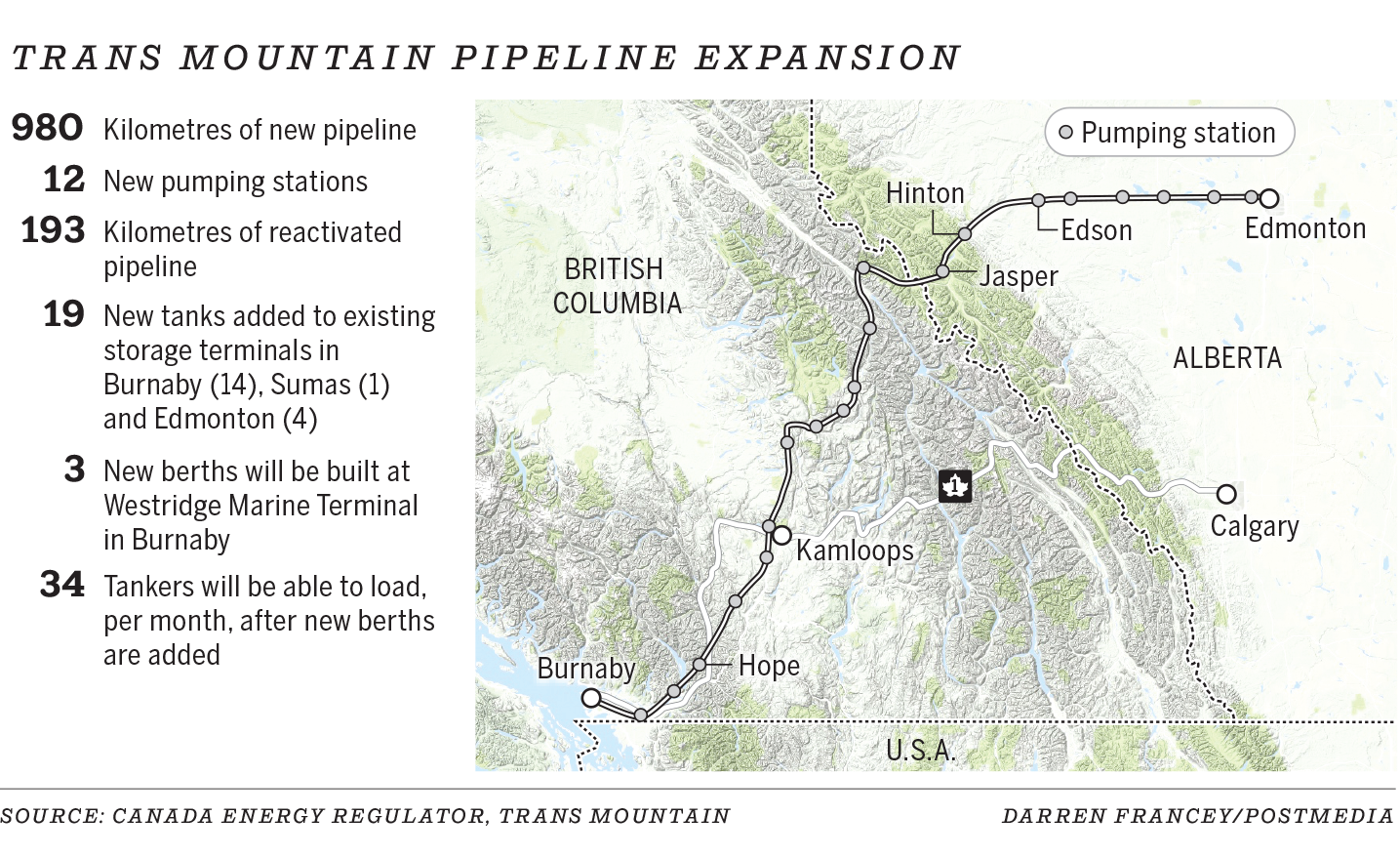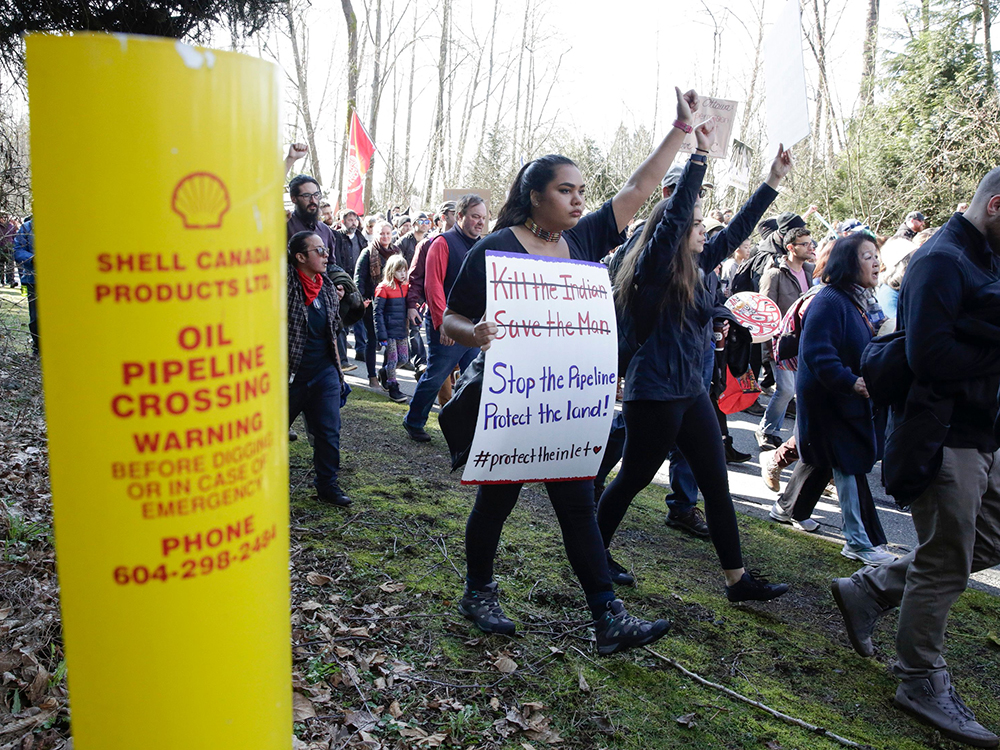
Finally, the light at the end of the long, dark tunnel for the Trans Mountain pipeline expansion is no longer an oncoming train.
It’s daylight.
On Tuesday, the
Federal Court of Appeal dismissed an attempt
by several First Nations in British Columbia to overturn the Trudeau government’s approval of the project.
The court unanimously rejected their request, paving the way for the expansion of the federally owned pipeline to continue moving ahead.
Construction has been
ramping up in recent months
on the project that will nearly triple the amount of oil that can be shipped from Alberta to the B.C. coast for export.
The ruling comes just a day after Minnesota regulators handed Enbridge’s Line 3 replacement project
a positive ruling
— backing a revised environmental impact statement — that’s needed to move ahead on construction in that state.
It’s a double dose of progress for pipeline proponents, the Canadian oil industry and the Alberta government.
“All of these are really adding momentum collectively,” Tim McMillan, president of the Canadian Association of Petroleum Producers, said in an interview.
“We have to look at this as significant steps forward,” added Chris Bloomer, CEO of the Canadian Energy Pipeline Association.
“We have been going three steps forward, two steps back, two steps forward, one step back. This is many steps forward now.”
That’s an optimistic view of the Trans Mountain expansion, a project that was submitted to Canadian regulators seven years ago and has hit more potholes than a truck on a Prairie gravel road during spring melt.
However, the legal hurdles are slowly being swept away. Construction is now underway. More than 2,200 people have been hired to work on the project.
It has an expected startup date of mid-to-late 2022.
As Precision Drilling Corp. CEO Kevin Neveu said Tuesday: “This is a bunch of bright light in a tunnel right now and we haven’t had that in quite a while.”
Related
Expanding the pipeline, which moves oil and refined products from the Edmonton area to Burnaby, B.C., has already been deemed in the national interest.
After the Trudeau government approved the project in 2016, it appeared to be heading toward completion, set to provide relief to Canada’s congested pipeline system by late 2019.
A surprising decision by the same Federal Court of Appeal in August 2018 quashed the initial government approval, due in part to inadequate consultations conducted by Ottawa with affected First Nations.
In the latest case, the Coldwater Indian Band, Squamish Nation, Tsleil-Waututh Nation and a group of several other B.C. First Nations contended Ottawa had again failed to properly consult with them over the development.
They argued Canada did not engage in the process with an open mind, noting the federal government owns Trans Mountain after buying it two years ago for $4.5 billion.
On the other side, the federal government — along with the provinces of Alberta and Saskatchewan acting as interveners — insisted the consultation was adequate.
The court agreed.
In the new ruling, the judges noted the federal government showed it understood the importance of the 2018 court decision and Ottawa’s shortcomings in the earlier consultation process.
The government invited 129 Indigenous groups potentially affected by the expansion to participate in the consultation process.
“In the end, more than 120 either support it or do not oppose it,” the ruling noted.
“Contrary to what the applicants assert, this was anything but a rubber-stamping exercise.”

University of Calgary law professor Nigel Bankes said the federal government has been an “incredibly slow learner” on conducting meaningful consultations with Indigenous communities in the past, but now understands what is required.
“It is really important to emphasize that Canada has seemed to learn its lessons here, and hopefully this will be a model for the future,” he said.
The opponents could seek leave to appeal Tuesday’s decision to the Supreme Court of Canada, although Bankes suspects that would be an uphill battle.
In Tuesday’s ruling, the judges found Ottawa’s approval of the project was reasonable and also highlighted several key points.
“The applicants’ submissions are essentially that the project cannot be approved until all of their concerns are resolved to their satisfaction,” it stated.
“If we accept those submissions, as a practical matter there would be no end to consultation, the project would never be approved and the applicants would have a de facto veto right over it.”
That addresses an important issue. Unanimous agreement is nearly impossible to achieve on major projects. Death by delay has been a concern for developers of such big-ticket initiatives.
For the industry, the court provided much-needed clarity as the ruling is important “both for this project and future projects,” said Neveu.
But producers and industry groups remain cautious about declaring victory, aware that energy infrastructure projects can quickly be sidetracked by unexpected developments.
And critics vowed Tuesday to continue their campaign against the Trans Mountain expansion.
“We should take nothing for granted,” said McMillan.

The real test of industry optimism will come when companies feel confident enough in having adequate pipeline capacity that they spend more growing production.
With oil closing at US$49.61 a barrel on Tuesday and
Alberta’s production curtailment still in place
, that won’t happen quickly, even with positive pipeline rulings.
“It’s an important milestone, but I am going to save the celebration until we have products flowing through pipe,” said Athabasca Oil Corp. CEO Rob Broen.
“All of this is good for optimism, but before we start spending more money, we need more certainty.”
Bloomer is confident all of the major pipeline proposals that would move western Canadian oil to market — Keystone XL, Trans Mountain and Line 3 — will be built.
However, after years of false starts, delays and disappointments, it will take time for the daylight to arrive.
“We are at the end of a very long road,” Bloomer concluded.
“But it’s taught us a lot about how to proceed in the future, and that gives us great confidence.”
Chris Varcoe is a Calgary Herald columnist.
You can read more of the news on source
